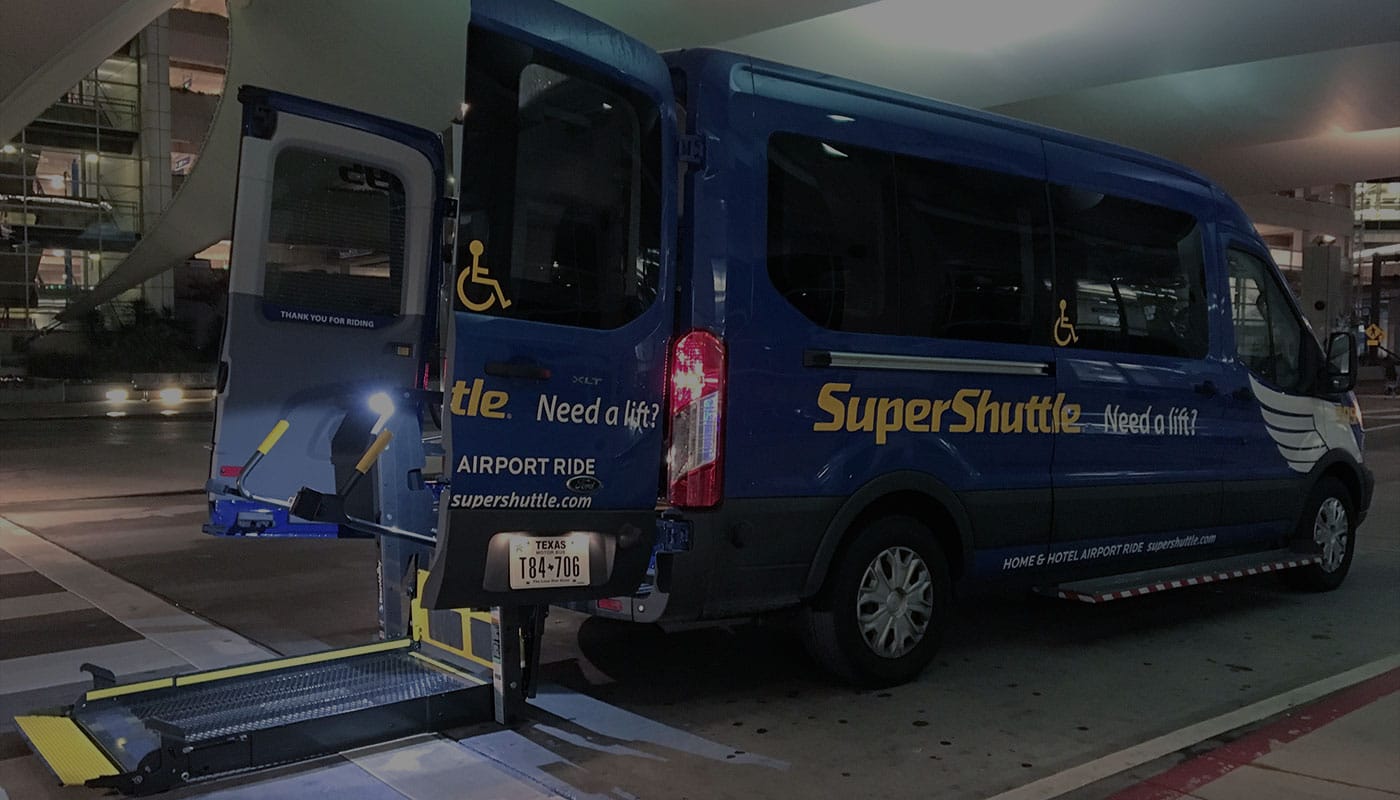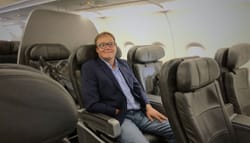Finding wheelchair accessible transportation to get to and from the airport is difficult in many cities around the United States, but SuperShuttle has long been a reasonably-priced option. The company, which began operations in 1983, became widely accessible to wheelchair users following a 2013 settlement agreement with the U.S. Department of Justice. It is a service that I have used in many cities around the country where no accessible alternative existed.
As first reported by the Los Angeles Times, SuperShuttle will cease operations nationwide at the end of the year. The last rides will be given on December 31st, and all future reservations beyond that date will be refunded.
The Times cited a letter sent to a SuperShuttle franchisee that stated “increasing costs and changes in the competitive and regulatory landscape” that “have called into question the economic and operational viability of the company’s operations.”
While not named directly, it is obvious that the culprits are rideshare operators like Uber and Lyft. At Los Angeles International Airport, where SuperShuttle first began service in 1983, “shared van rides plunged by two-thirds in the first half of this year compared with the first half of 2016, the first full year that Uber and Lyft operated there,” the Times reports.
As rideshare operators have taken a larger share of rides to and from America’s airports, companies like SuperShuttle have faced a significant decrease in business. These new transportation providers are rarely accessible, providing wheelchair rides in only 17 cities around the world — with limited service areas often designed to exclude airports.
This now means that in cities like Dallas, Texas, wheelchair users will have no affordable transportation options, apart from public transport. And at LAX, wheelchair users traveling to the city will face taxi cab fares of two to three times the cost of a SuperShuttle ride.
The ground transportation landscape is changing, and people with disabilities are being left behind. Governments and airport operators must demand that rideshare companies serve everyone equally, just as SuperShuttle was required to do. Without immediate action, airports will quickly find more wheelchair users stranded on arrival.














